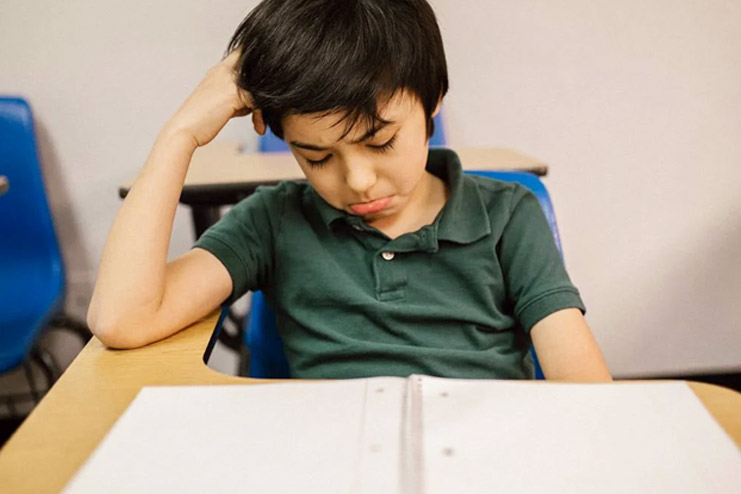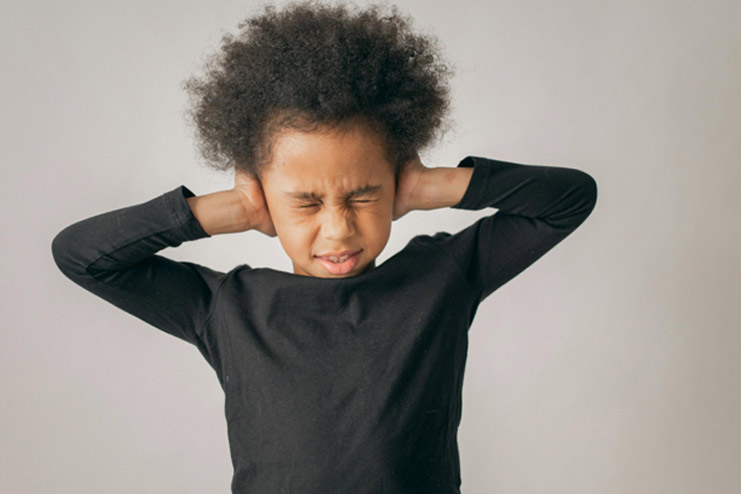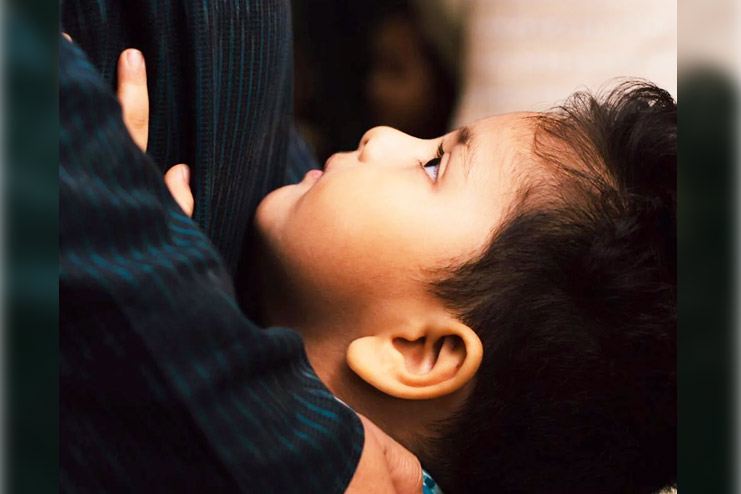Affiliate Disclaimer
Some links in this article are affiliate links. We may earn a small commission if you make a purchase through these links, at no extra cost to you. We only recommend products we find useful to our readersMental health in children significantly affects a child’s overall development, academic performance, and future success. These include anxiety disorders, depression, behavioral problems, attention deficit disorders, or difficulty concentrating.
If not addressed early on through therapy and emotional and social support, a child may experience long-term effects, have poor academic performance, and may experience poor interpersonal relationships, which may lead to other mental health disorders in adulthood.
Parents, custodians, and educators can help a child develop resilience, self-esteem, and emotional stability by tending to a child’s mental health.
Mental health in children is a significant concern for all and needs to be addressed at the right time through awareness, early detection, and utilizing necessary resources and professional assistance for improving overall child well-being.
Why Children’s Mental Health Matters: The Impact on Overall Well-Being

A child’s mental health and emotional well-being are the foundation of their overall growth as this affects their learning, behavior, and social interactions. Anxiety, depression, and behavioral problems can have a profound impact on a child’s potential for success, be it in school or socially.
According to the WHO, the incidence of mental disorders among children and adolescents is 14%. According to the Mental Health Foundation, 50% of all mental illnesses begin at age 14 and 75% by the mid-20s. Thus, it becomes necessary to detect these problems early and intervene immediately.
A child’s developing brain leaves him or her more vulnerable to bad experiences and makes them susceptible to wrong messages. Saying things such as “toughen up” or “be a man” can be harmful and evoke troublesome emotional and psychological development. External control such as this may wound a child’s self-esteem and resilience when childhood depression and anxiety are already a serious issue in the U.S.
Promoting positive emotions and providing a supportive environment is essential for promoting good mental health among children. Positive outlook, according to the American Psychological Association, helps children develop resilience and fight the challenges of life in a better way.
Therefore, by focusing on childhood mental health, we not only enhance the lives of children in the present but also help enhance their future, adult lives. Strong mental health support and nurturing will prepare future generations to face and overcome emotional and psychological problems.
Spotting the Red Flags: Key Signs of Mental Health Challenges in Kids

Recognizing the signs of mental health issues in children is crucial for early intervention and support. Common symptoms include a change in:
- Mood
- Behavior
- Sleep patterns
- Academic performance
Internalizing symptoms related to anxiety and depression include:
- Prolonged periods of sadness
- Change in social activities
- Worry
- Changes in appetite
Children first exhibit fears or worries that interfere with routine, indicating anxiety disorders. On the other hand, depression can cause a loss of interest in activities they once enjoyed, marked by changes in appetite or sleep.
Other warning signs include externalizing and aggressive or hyperactive symptoms. Many of these may emerge as:
- Frequent episodes
- Impulsive behavior
- Poor concentration
- Defiant behavior
Kids might also show physical symptoms of distress with frequent headaches or stomach aches. Other red flags include:
- Declining academic performance
- School avoidance
- Noticeable drop in energy levels
It is, therefore, the duty of parents, teachers, and caregivers to observe such changes and offer help, support, and guidance so that children receive timely treatment.
Also read: How Poor Nutrition Affects Your Child’s Academic Performance
Understanding Specific Conditions: Common Mental Health Issues in Children

Major mental health conditions in children come with different symptoms and affect day-to-day life in different ways. Understanding these symptoms will help identify the condition in an early stage.
Childhood Anxiety
Anxiety disorders in children may take the form of excessive worrying or fear that affects their normal activities. In such a case, restlessness, irritability, sleeplessness, and physical complaints such as headache or stomachache may tend to indicate the symptoms of anxiety.
Social anxiety, generalized anxiety, and obsessive-compulsive disorder are some common forms of childhood anxiety that may affect children’s social interactions and academic performance.
Depression
Childhood depression involves persistent sadness, loss of interest in activities, functional changes related to appetite or weight, and disturbance in sleep. Children may also have irritability, fatigue, and trouble with concentration. These can prove to be major issues for a child’s functioning at home and school, leading to poor academic performance or creating a strain in interpersonal relationships.
Attention-Deficit/Hyperactivity Disorder (ADHD)
ADHD is caused by inattention, excessive activity, and impulsivity, which are atypical for a child at that age. Symptoms include trouble focusing, fidgeting, excessive talking, and acting before thinking. Such behaviors affect learning and relationships and often result in poor academic and behavioral performance in schools.
Autism Spectrum Disorder (ASD)
ASD is a neurodevelopmental disorder representing the amalgamation of psychiatric, behavioral, and neurological problems. The severity varies from child to child, ranging from children who need quite a lot of extra support to children who can be left to handle an independent life.
Symptoms can vary from impaired social interaction and nonverbal communication to restricted and repetitive behavior. Some key symptoms include difficulty understanding meaning from social cues, forming relationships, and changing routines.
All of these mental health conditions can have a significant impact on the daily life of a child; hence, early diagnosis with appropriate intervention is crucial for the child’s well-being and development. Customized therapies, educational support, and family involvement are some of the crucial means of managing such mental health conditions effectively.
Empowering Parents: Effective Ways to Support Your Child’s Mental Health

Supporting a child’s mental health is crucial for their overall development and well-being. Here are some practical tips for parents:
- Model Healthy Coping Skills: Children learn by example. You can show your child how to cope with difficult feelings and situations by handling your stress and emotions in a healthy fashion – deep breathing, exercising, or engaging in hobbies that bring you joy. Show your child how you handle stress and invite them to practice these stress management techniques with you.
- Open and Honest Communication: Allow the child to feel secure that when they open up to you about their feelings, they are not being judged. Check-in with your child regularly, listen carefully to what they say, and acknowledge their feelings. Let them know that it’s okay to be sad, angry, confused, or whatever they are feeling.
- Create a Supportive Environment: Develop a consistent home routine that can instill security within your child. Reliable time for meals, doing homework, and going to bed can reduce anxiety. Clearly stated expectations and limits also provide structure and clarity.
- Encourage Healthy Habits: Physical activity, healthy eating, and adequate sleep help the body and soul develop a balanced life. Encourage children to find activities they enjoy, such as biking, dancing, or joining a team sport.
- Positive Reinforcement: Recognize and praise your child’s efforts and achievements. Positive feedback boosts self-esteem and encourages desirable behavior. Celebrate both big and small accomplishments to give your child a sense of worth.
- Involve Them in Decision-Making: Including children in age-appropriate decisions helps them feel valued and respected. This could be as simple as choosing what to have for dinner or planning a family outing. It fosters independence and confidence.
- Monitor for Behavioral Changes: Observe if your child shows signs of withdrawing from activities, changes in appetite, changes in sleep patterns, or mood swings. This could indicate a mental health problem.
- Discuss Emotions Regularly: Share your feelings with your child, describing what happened to you and how you coped with those feelings. This helps your child learn to express feelings without fear of being judged.
- Seek Professional Help When Needed: Contact a doctor if your child’s mental health does not show improvement. Early intervention can control mental health problems before they become complicated.
Seeking Help: Finding Professional Resources and Support for Your Child
Seeking professional help for a child’s mental health is important when symptoms start affecting daily life. Mental health professionals, such as psychologists, counselors, and psychiatrists, are equipped to provide specialized care and support. Various therapies, including Cognitive Behavioral Therapy (CBT) and play therapy, can address different mental health issues effectively.
Types of Professionals:
- Psychologists
- Counselors
- Psychiatrists
Therapies for Children:
- Cognitive Behavioral Therapy (CBT): Focuses on identifying and changing negative thought patterns to improve behavior and emotions. Suitable for anxiety, depression, and PTSD.
- Play Therapy: Uses play to help children express their feelings and resolve psychological issues. Suitable for younger children.
- Behavior Therapy: Teaches children and families how to modify behavior through reinforcement techniques. Suitable for ADHD and disruptive behavior disorders.
- Family Therapy: Involves multiple family members to improve communication and resolve conflicts. Beneficial for adolescents with behavioral issues.
Mental Health Resources:
- Support Groups
- Hotlines
- Online Directories
Creating a Safety Net: Building a Supportive Community for Your Child
A child must be surrounded by a supportive community to take proper care of their mental health. This supportive community would include schools, friends, and extra-curricular activities – all of which are significant in providing stability and encouragement.
- Schools: Teachers and school counselors will be able to identify early signs of a mental health problem and thus offer support. Schools can also give children a sense of belonging and the feeling of worthiness in a safe and caring environment, thereby supporting positive emotional health.
- Friends: Peer support forms an integral part of a child’s life. Teaching good social skills and ways of becoming resilient will help in creating positive friends.
- Extracurricular Activities: Engaging in sports, art, or clubs allows for increased self-esteem in a child and becomes a healthy outlet when stressed. The activities allow the child to engage with others.
Conclusion
Child mental health awareness is an important process in the development and well-being of children. Observing common signs, knowing what these conditions are, and providing effective parental support are necessary measures.
A network of support through schools, friends, and co-curricular activities additionally supports the healthy emotional character of a child. Seeking professional assistance whenever needed will give children the best possible care.
Continuous support and vigilance will help children with their mental health problems early on, and build resilience to fight the challenges of life and flourish in childhood and when they are adults.
References
- https://positivepsychology.com/child-mental-health-happiness/
- https://www.mayoclinic.org/healthy-lifestyle/childrens-health/in-depth/mental-illness-in-children/art-20046577
- https://discoverymood.com/blog/10-ways-to-support-your-childs-mental-health/
- https://www.cdc.gov/childrensmentalhealth/parent-behavior-therapy.html
- https://www.mentalhealth.org.uk/explore-mental-health/statistics/children-young-people-statistics
- https://www.apa.org/topics/resilience/guide-parents-teachers
In this Article




















